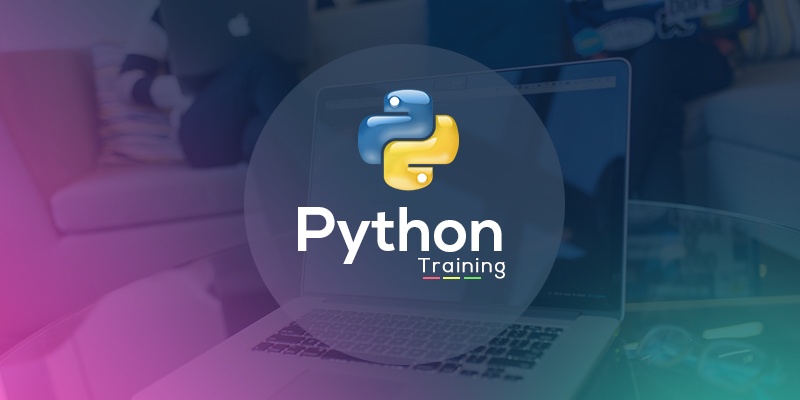Introduction:
Python, often hailed as the Swiss Army knife of programming languages, has captivated the hearts and minds of developers worldwide. Renowned for its simplicity, versatility, and readability, Python has become the go-to choice for beginners and seasoned professionals alike. But beyond its surface appeal lies a world of mysteries waiting to be unraveled. In this article, we embark on a journey to explore the enigmatic facets of Python, delving into its history, unique features, diverse applications, and the secrets that make it a powerhouse in the realm of programming.
A Brief History:
To understand the mysteries of Python, we must first trace its origins. Conceived in the late 1980s by Guido van Rossum, Python emerged as a successor to the ABC language, aiming to prioritize simplicity and code readability. Released publicly in 1991, Python swiftly gained traction among developers due to its intuitive syntax and dynamic typing. Over the years, Python has evolved through various versions, with each iteration introducing enhancements and refinements while preserving backward compatibility.
Key Features:
At the core of Python's allure are its distinctive features that set it apart from other programming languages. Let's delve into some of the key attributes that contribute to Python's mystique:
Readability: Python's syntax emphasizes clarity and conciseness, making it easy to understand and maintain code. The use of meaningful whitespace and English-like constructs fosters readability, enabling developers to express complex ideas with simplicity.
Versatility: From web development to data science, Python finds applications across diverse domains. Its extensive standard library provides a rich repository of modules and packages, empowering developers to tackle a wide range of tasks without reinventing the wheel.
Dynamism: Python's dynamic typing system allows for flexible and expressive coding, enabling developers to write code that adapts to changing requirements. This dynamic nature facilitates rapid prototyping and experimentation, fostering creativity and innovation.
Community and Ecosystem: Python boasts a vibrant and supportive community comprising developers, enthusiasts, and experts. This thriving ecosystem fosters collaboration, knowledge-sharing, and continuous improvement, ensuring that Python remains at the forefront of innovation.
Applications:
The versatility of Python lends itself to a myriad of applications across various industries. Let's explore some notable use cases where Python's prowess shines:
Web Development: Frameworks like Django and Flask empower developers to build robust and scalable web applications with ease. Python's simplicity and productivity make it an ideal choice for developing dynamic websites and APIs.
Data Science and Machine Learning: Python has emerged as the de facto language for data science and machine learning. Libraries such as NumPy, Pandas, and Scikit-learn provide powerful tools for data manipulation, analysis, and modeling, making Python indispensable in the realm of data-driven decision-making.
Automation and Scripting: Python's versatility extends to automation and scripting tasks, allowing developers to streamline workflows and automate repetitive processes. Whether it's automating system administration tasks or scripting interactions with APIs, Python excels in simplifying complex tasks.
Game Development: Python's simplicity and ease of use make it a popular choice for game development. Libraries like Pygame offer game development frameworks that enable developers to create immersive gaming experiences with minimal overhead.
Secrets Unveiled:
Behind Python's facade lies a treasure trove of secrets waiting to be unveiled. Let's peel back the layers and uncover some of the mysteries that make Python truly magical:
Pythonic Idioms: Pythonic code embodies a set of principles and idioms that promote clarity, elegance, and simplicity. Understanding and embracing these Pythonic ideals is key to writing code that is not just functional but also elegant and expressive.
Duck Typing: Python's philosophy of "duck typing" emphasizes behavior over type, allowing objects to be defined by what they can do rather than what they are. This dynamic approach to typing fosters flexibility and interoperability, enabling developers to write code that is more adaptable and reusable.
The Global Interpreter Lock (GIL): Python's Global Interpreter Lock, or GIL, has long been a subject of debate and speculation among developers. While the GIL simplifies concurrency by ensuring that only one thread executes Python bytecode at a time, it can also be a bottleneck in multithreaded applications. Understanding the nuances of the GIL is essential for writing efficient and scalable Python code.
Metaprogramming: Python's support for metaprogramming enables developers to write code that manipulates itself at runtime. Techniques such as decorators, metaclasses, and introspection empower developers to write code that is not just functional but also introspective and self-modifying.
Conclusion
Python, with its best Python Training Institute in Agra, Dehradun, Delhi, Noida and all cities in India is more than just a programming language; it's a gateway to a world of endless possibilities and mysteries waiting to be explored. From its humble beginnings to its ubiquitous presence in modern software development, Python continues to captivate and inspire developers worldwide. By understanding the intricacies of Python's design, features, and applications, we can unlock its full potential and harness its magic to create innovative solutions to complex problems. So, embrace the mysteries of Python, and let your coding adventures begin.


No comments yet